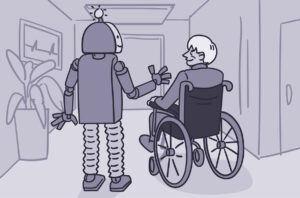Anemia
- A deficiency in
- Number of erythrocytes (RBCs)
- Quantity of hemoglobin
- Volume of packed RBCs (hematocrit)
- RBC function
- Transport oxygen (O2) from lungs to systemic tissues
- Carry carbon dioxide from tissues to lungs
- Not a specific disease
- Manifestation of a pathologic process
- Diagnosed based on
- Complete blood count (CBC)
- Reticulocyte count
- Peripheral blood smear
Cause of anemia
- Decreased RBC production
- Deficient nutrients
- Iron
- Cobalamin
- Folic acid
- Decreased erythropoietin
- Decreased iron availability
- Deficient nutrients
- Blood loss
- Chronic
- Bleeding duodenal ulcer
- Colorectal cancer
- Liver disease
- Acute
- Acute trauma
- Ruptured aortic aneurysm
- GI bleeding
- Chronic
- Increased RBC destruction
- Hemolysis
- Abnormal hemoglobin (Sickle cell disease)
- Medication (e.g., methyldopa [Aldomet]) and chemicals (e.g., chemotherapy, lead)
- Incompatible blood
- Antibodies against RBCs
- Physical destruction
- Prosthetic heart valves
- Extracorporeal circulation
- Disseminated intravascular coagulopathy (DIC)
- Thrombotic thrombocytopenic purpura (TTP)
- Trauma (e.g., cardiopulmonary bypass)
- Infectious agents (e.g., malaria) and toxins
- Radiation
- Hemolysis




